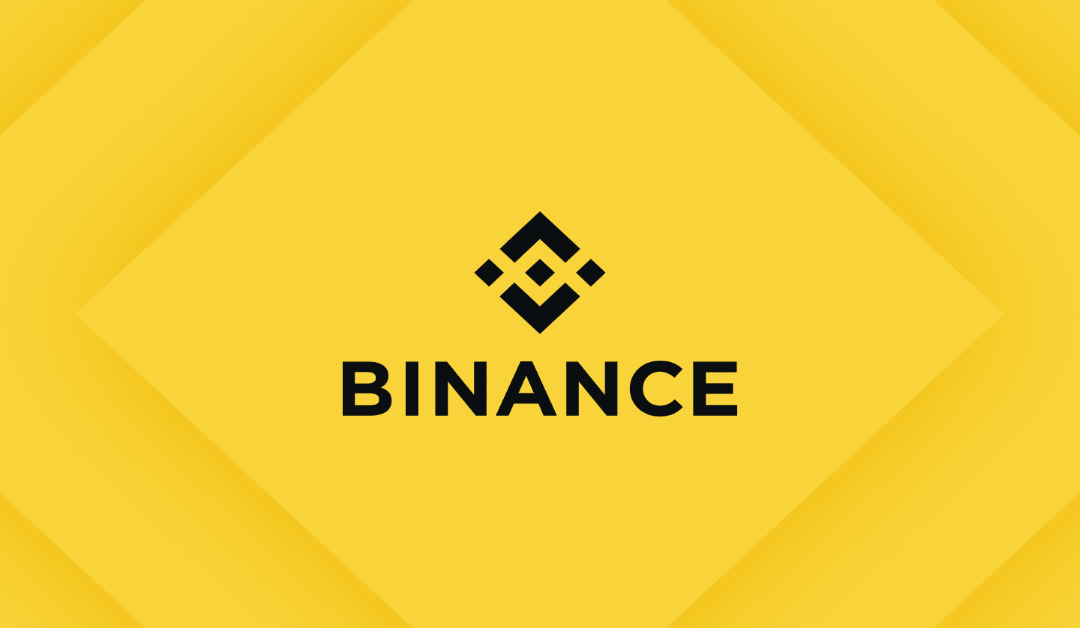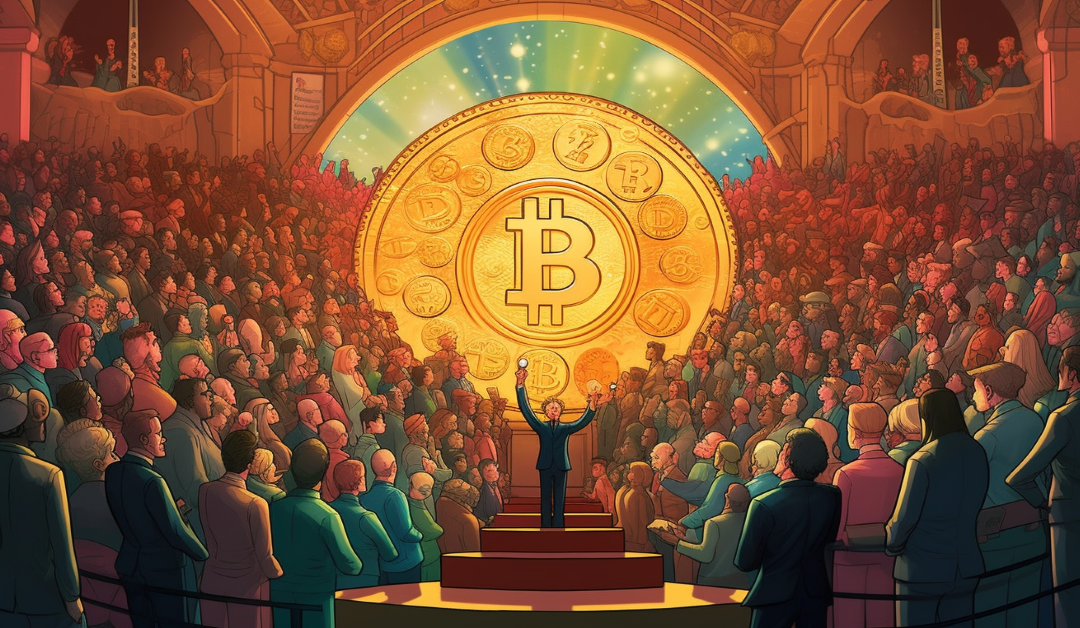
by admin | May 29, 2023 | Cryptocurrencies
Binance, the world’s largest crypto exchange by daily transaction volume, has promoted Binance Singapore CEO Richard Teng to oversee all regional markets apart from the U.S. The exchange seeks to increase its international presence as it continually faces scrutiny from U.S. regulators over compliance issues.
Binance Singapore CEO Richard Teng to be a regional executive
Teng revealed his promotion via his LinkedIn profile, saying it’s an honor to serve in that capacity as he has already been heading regions like Asia, Europe, and the Middle East, fulfilling him to serve the company duly.
Teng joined the company in 2021 as the Singaporean branch’s CEO and has since been crucial to the company’s international markets dominance plans. He will now be tasked to ensure the maturity of their business in different regions worldwide but not in the U.S., where they are receiving heavy regulatory objections.
The move by the exchange to increase its international presence comes shortly after its confirmed departure from Canadian markets and cancellation of its financial services license in Australia.
Teng previously worked in various financial institutions like Singapore Exchange Ltd, Abu Dhabi Global Market, and the Monetary Authority of Singapore, and will now be a strategic executive for the exchange’s push to connect different regions via crypto technology.
Keep watching Fintech Express for updates on this and other Fintech-related stories.

by admin | May 29, 2023 | Regulation
Crypto regulation in Indonesia has taken a new turn as Bali Governor issues a stern warning to tourists who are using crypto assets as substitutes for money in the country. He hosted a press conference on May 28 explaining that the crypto remains illegal in the country and that those who use it as means of payment will be dealt with firmly including tourists.
Crypto regulation becomes more sensitive in Indonesia
While other countries are working on crypto regulation frameworks to foster innovation, Indonesia is joining a group of the ones that take digital assets as economic threats. The Bank of Indonesia Governor Wayan Koster has asserted that the nation will not loosen its laws regarding crypto usage.
He explained that there will be a range of penalties for tourists who will be caught using cryptos including deportation, administrative sanctions, penalties, closure of their business premises, and further legal actions depending on the gravity of the situation.
The press conference was attended by Bali’s Chief Police Inspector and the head of the Bali Representative Office for the Bank of Indonesia, Trisno Nugroho. Nugroho however reaffirmed that crypto trading in the country is still allowed but the usage of crypto as a means of payment is banned and thus punishable by law.
Koster noted that the only legal means of payment in the country is the Rupiah with the use of all other forms of payment being considered against the law and carrying a maximum sentence of one year in prison or a fine of 200 million Rupiah ($13,000)
This news comes at a controversial time as there are already 37 businesses in Bali that accept crypto. Also, Indonesia was planning to launch a crypto exchange in 2022 but the plan was not successful as it was hit by delays.

by Samuel Mbaki | May 25, 2023 | Learn
Introduction
Crypto adoption has been accelerating lately despite the recent market turns proving that the industry may already be beyond the point of return. As such, large financial institutions previously objecting to legalizing crypto technology are slowly warming up to it, with the likes of Goldman Sachs, Bank of America, and JP Morgan Chase Banks even offering custodial services.
German Banks are offering crypto services to institutional investors
Crypto is still young and thus yet to be legalized in most nations, including Germany. However, the narrative is now changing slowly but at a steady pace. Germany is exploring the potentially game-changing abilities of the crypto industry due to concerns about missing out as other nations are doing the same.
In March 2023, Deutsche WertpapierServiceBank (Dwpbank) introduced its wpNex crypto trading platform that exposes 1,200 banks and financial institutions in Germany to digital assets. However, how well the banking institutions will receive innovation over time remains to be seen.
In other reports, several banking organizations already offer crypto services to institutional investors. Deutsche Bank majorly owns the asset management group DWS, which has been looking for a way of getting into crypto and exposing its investors to digital assets.
In April, DWS announced that it was working with Galaxy Digital to develop exchange-traded products linked to cryptos that will be available in the European markets. Its CEO posted a statement on Linked In saying that though cryptos are most fraudulent, some innovations will disrupt international markets.
Other banks like Commerzbank and Dekabank are among the growing entities seeking crypto licenses from Germany’s financial watchdog, the Federal Financial Supervisory Authority (BaFin). However, their plans are geared towards institutional investors and not retail.
Though there are still limits on who can use German banks to access crypto assets, crypto adoption is seemingly taking root. However, only time will tell where the government will stand regarding crypto adoption there.
Select U.S. banks spearheading crypto adoption
Though the U.S. SEC is vehemently going after crypto ‘troublemakers, banks in the country are not stopping or slowing down crypto adoption. The number of banks warming up to the industry is slowly rising, showing signs of possible total crypto adoption.
Goldman Sachs, a major banking institution in the U.S., began providing cryptocurrency trading in the U.S. in 2018 but had to discontinue it as investors began becoming wary. However, the 2021 bull market brought more pressure from investors to access major crypto assets like Bitcoin, which made the bank start offering crypto trading again. Now, it allows for the trading of both Ethereum and Bitcoin.
Metropolitan Commercial Bank is another U.S.-based financial institution allowing crypto trading via partnerships with major crypto exchanges like COinbase and Gemini. It also provides wire transfer services with Bitcoin firms and other crypto-related financial services.
JP Morgan Chase is one of the largest banks in the world and is based in the U.S. It has been gearing up to offer crypto services even with its CEO actively despising the assets on a personal basis. Now, his bank allows its users to connect to Coinbase exchange to buy and sell crypto assets. It has also built a private blockchain and crypto known as JPM coin to facilitate international payments.
Bank of America, one of the largest banks in the U.S., has shown itself to support crypto adoption, though it still doesn’t allow its customers to invest directly into crypto assets. It uses one of its subsidiaries, Merrill Edge, an electronic trading platform launched in 2010 to allow its customers to trade Exchange-traded funds (ETFs) that provide exposure to crypto assets.
In 2021, the Bank of America also introduced a new executive position, head of digital trading. Mark Donoghue will be helmed and tasked to deal with investment questions regarding digital assets.
HongKong banks exploring how to take part in spearheading crypto adoption
Chinese banks are readying themselves to offer banking services to offer crypto startup services in Hong Kong as the China ban still ensues but does not extend to the break-away city. As major crypto banks like Signature and Silvergate have already collapsed, these chines banks are scrambling to replace them.
Hong Kong-based ZA Bank is one such bank. It is already allowed to serve as a settlement bank for regulated Web 3 companies in the city. The online bank will now offer crypto-fiat conversions with two licensed digital assets, exchanges HashKey and OSL.
Other Hong Kong banks like Bank of Communications Co., Bank of China Ltd., and Shanghai Pudong Development Bank have also started to offer financial services to local crypto firms or, in other cases, offered to help. These developments foreshadow a growing acceptance of digital innovation, likely boosting crypto adoption in Asia.
On May 24, 2023, Binance CEO revealed that China State TV had covered crypto news long after the country enacted a blanket ban against investing in crypto assets in September 2021 and jailed the ‘lawbreakers’ on this front. However, things did not cool down as Bitcoin registered an all-time high price in November of the same year.
Now, the narrative of nations against crypto adoption seems to be changing into nations protecting investors against being taken advantage of by regulating digital assets. This journey has been joined by banks, which shows that the crypto industry is still here to stay and most likely thrive. However, only time can tell how regulation will factor in the development and growth of the industry.
Keep watching Fintech Express for updates on this and other related stories. No part of this article should be regarded as financial advice. Do your research and use caution if you choose to invest in the crypto space.

by Antonio Madeira | May 24, 2023 | Blockchain
LG Electronics, a leading technology company, has recently made a significant move into the world of non-fungible tokens (NFTs) by filing a patent for its Smart TV.
LG’s innovative NFT trading Technology
LG Electronics filed a patent application with the aim of integrating blockchain technology into its Smart TVs, enabling users to engage in NFT trading. This groundbreaking advancement has the potential to transform the way individuals interact with digital assets and broaden the accessibility of NFT trading. LG’s commitment to embracing this emerging technology is further emphasized by the recent publication of the patent application in the World Intellectual Property Organization’s global database.
The patent filed by LG provides an overview of the technological framework underpinning their Smart TVs, which facilitates seamless transactions by establishing connections with cryptocurrency wallets and NFT market servers. Once connected to an NFT market server, the Smart TV displays QR codes on the screen, enabling users to finalize transactions conveniently using their cryptocurrency wallets. By integrating blockchain technology into their Smart TVs, LG aims to enhance the convenience and accessibility of NFT trading, appealing to a wider range of users.
The LG Art Lab Marketplace
LG’s venture into the world of NFT trading extends beyond a single initiative. In September 2021, the company introduced the LG Art Lab Marketplace, an innovative platform operating on the Hedera network. This marketplace revolutionizes the buying and selling of high-quality digital artworks by enabling users to directly engage with it from their Smart TV home screens.
Moreover, the LG Art Lab Marketplace presents “LG Art Lab Drops,” which showcase artist profiles and provide exclusive previews of forthcoming works. Although it remains uncertain whether the Smart TV will support additional wallet apps beyond LG’s own Wallypto, which is also utilized on the Art Lab Marketplace, this NFT platform underscores LG’s dedication to embracing the realms of digital art and blockchain technology.
LG’s dedication to Web3 solutions
LG Electronics has been proactive in integrating Web3 solutions into its range of devices. In January 2022, the company established strategic partnerships with technology platforms Oorbit and Pixelynx to offer its Smart TV users an immersive metaverse experience. Through this collaboration, LG customers gain the ability to delve into virtual worlds and even participate in virtual concerts, all from the comfort of their own living rooms using their Smart TVs.
Even before filing the NFT patent, LG had introduced the LG Art Lab Marketplace, which operates on the Hedera network. These initiatives exemplify LG’s unwavering commitment to exploring and implementing state-of-the-art technologies, pushing boundaries in the industry.
Potential expansion into cryptocurrency and blockchain trading
Aside from its endeavors in NFT trading and the metaverse, LG Electronics is reportedly contemplating the possibility of entering the crypto exchange market. While a definitive resolution has yet to be reached, a spokesperson for LG has affirmed the company’s intentions to broaden its scope into these domains. Notably, LG’s competitor, Samsung, has also made strides in the NFT and metaverse arenas via its venture capital arm, Samsung Next. Samsung has integrated an NFT marketplace into its lineup of smart TV products, showcasing cutting-edge technologies like Micro LED, The Frame, and QLED.
LG’s NFT and Web3 impact
LG Electronics recent patent application, focusing on NFT trading functionality integrated into its Smart TVs, showcases the company’s dedication to embracing blockchain technology and providing novel avenues for users to engage with digital assets. By seamlessly incorporating cryptocurrency wallets and NFT market servers into their Smart TVs, LG aims to streamline the NFT trading process and enhance accessibility for a wider user base.
Through its introduction of the LG Art Lab Marketplace and strategic collaborations with Web3 platforms, LG is firmly establishing itself as a prominent participant in the rapidly evolving realms of NFTs and the metaverse. These initiatives demonstrate LG’s proactive approach to pioneering advancements in these emerging fields. As LG continues to explore the potential of crypto and blockchain-based solutions, the technology landscape is poised for remarkable developments that have the potential to redefine digital interactions in the future.

by Antonio Madeira | May 23, 2023 | Cryptocurrencies
The introduction of the DRC-20 token standard has caused a surge in daily transactions on the Dogecoin chain, surpassing Bitcoin and Litecoin at its peak.
Surging Dogecoin transactions outshine Bitcoin and Litecoin
Dogecoin transactions skyrocketed to a record-breaking 650,000 on May 14, as reported by Mishaboar, a prominent figure on Twitter. The surge in activity has been linked to users swarming the Dogecoin network in order to mint the newly introduced tokens. Fueling the hype surrounding DRC-20 tokens are various Twitter accounts that tout their potential and draw comparisons to the popular BRC-20 tokens, which have recently suffered from a market decline.
https://twitter.com/mishaboar/status/1657923671371948034?s=20)
Cryptocurrency enthusiasts and investors have been captivated by the sudden surge in Dogecoin transactions. On May 14, the daily transactions on the Dogecoin chain reached a peak of approximately 630,000, outperforming Litecoin’s roughly 350,000 daily transactions and falling just short of Bitcoin’s numbers. Subsequently, Bitcoin and Litecoin transactions have displayed an upward trajectory, while Dogecoin’s daily transactions have experienced a slight decline.
The rise of DRC-20 tokens fuels Dogecoin transaction surge
The surge in activity on the Dogecoin network can be attributed to the adoption of the DRC-20 token standard. Users have eagerly embraced these tokens, leading to an upsurge in transactions. Mishaboar, a prominent Twitter user who shed light on the increase in Dogecoin transactions, stated, “Over the past two days, many individuals have been rushing to mint these ‘tokens’.”
Introduced on May 9, DRC-20 tokens share a similar technical framework to BRC-20 tokens. These tokens enable the recording of digital assets on the smallest units of Dogecoin, known as elons. With 100,000,000 elons per Dogecoin, users can inscribe arbitrary content, allowing for the creation of Dogecoin-native digital artifacts. This includes both fungible and non-fungible tokens (NFTs), all without the need for a separate token or sidechain.
A notable factor driving the interest in DRC-20 tokens is the narrative propagated by numerous Twitter accounts. These accounts assert that DRC-20 is the next big thing after BRC-20, with tokens minted on this standard having the potential to experience 100-fold growth. It is important to note that BRC-20 tokens reached a peak market valuation of $1 billion on May 8 due to the frenzy surrounding meme coins. However, the market cap valuation has since declined.
Concerns arise as market value of BRC-20 tokens declines
The decrease in market value of BRC-20 tokens, along with a significant 61% drop in the value of Pepe, an ERC-20 token that played a significant role during the meme season, has sparked concerns regarding the momentum of meme coins in the present cycle. Speculation has arisen suggesting that the excitement surrounding meme coins may be waning. As a result of this downturn, investors have begun to venture into alternative opportunities, including the emerging DRC-20 tokens.
DRC-20 tokens drive Dogecoin transaction boom
The introduction of DRC-20 tokens has ignited a surge in daily transactions on the Dogecoin chain, although it is still in the early stages. Users are capitalizing on the minting possibilities offered by these tokens, and their appeal has been heightened by drawing parallels with the widely popular BRC-20 tokens.
Elon Musk to the rescue? Uncertain future for DRC-20 tokens
As the market for meme coins undergoes fluctuations and investors search for fresh avenues, the future of DRC-20 tokens remains uncertain. Nevertheless, their influence on Dogecoin’s transaction volume exemplifies the potential for innovation and expansion within the cryptocurrency realm. Notably, if Elon Musk were to become involved, the prominence of DRC-20 tokens in the crypto-sphere may skyrocket.





